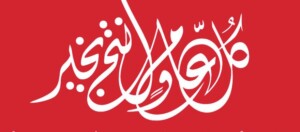Corruption in Sudan Religious Affairs Ministry exposed
The Sudanese Ministry of Religious Affairs and Endowments has been involved in ‘huge corruption’ during the Al Bashir era (1989-2019). Minister of Religious Affairs and Endowments Nasreldin Mofareh told a press conference at the office of the High Council for the Haj and Omra (pilgrimages to Mecca and Medina in Saudi Arabia) in Khartoum yesterday that the fraudulent practices included “wasting of money paid by pilgrims to the Council”.
 Minister of Religious Affairs Nasreldin Mofreh at his press conference yesterday (Social media)
Minister of Religious Affairs Nasreldin Mofreh at his press conference yesterday (Social media)
The Sudanese Ministry of Religious Affairs and Endowments has been involved in ‘huge corruption’ during the Al Bashir era (1989-2019).
Minister of Religious Affairs and Endowments Nasreldin Mofareh told a press conference at the office of the High Council for the Haj and Omra (pilgrimages to Mecca and Medina in Saudi Arabia) in Khartoum yesterday that the fraudulent practices included “wasting of money paid by pilgrims to the Council”.
Officials of the Ministry “transferred awqaf (endowments*) to organisations of the Islamic movement and to some of its individual members”.
More than 48 endowment properties, with assets estimated at more than $397 million, have been recovered. Following the recovery of these objects, “trust in endowments was restored in the souls of the Sudanese people”, Mofareh said.
He added that, in the past, the Ministry regularly issued a fatwa** on the request of the Al Bashir regime, such as permitting the authorities to use excessive force against the people.
Mofareh also stated that takfir*** (excommunication) “threatens the social fabric”. The ministry has drawn up plans and put regulations in place to control the religious discourse. “The ministry has developed a methodology to do so based on moderation and away from religious extremism,” the minister said. “We are working to establish the principle of religious freedom. No religion should be restricted. The ministry keeps the same distance from all religions.”
The Minister indicated several challenges facing the ministry today, such as promoting moderation, fighting extremism, elevating values and good morals, and fighting corruption in society.
Over a year ago, Mofareh mentioned “significant corruption” in Sudan’s Muslim endowment administration, and promised “to root it out”. The Public Prosecutor was to establish a special team to investigate corruption at the Ministry. In August, the Anti-Corruption Committee**** fired 14 officials of the Haj and Omra Administration.
* Under Islamic law, a waqf (pl. awqaf), a mortmain property, is an inalienable charitable endowment. It typically involves donating a building, plot of land, or other assets for Muslim religious or charitable purposes with no intention of reclaiming the assets. A charitable trust may hold the donated assets.
** In Islam, a fatwa, is a formal ruling or interpretation on a point of Islamic law given by a qualified legal scholar (known as a mufti). Fatwas are usually issued in response to questions from individuals or Islamic courts.
*** Takfir (or takfeer) denotes excommunication from Islam of one Muslim by another, i.e. one Muslim declaring another a non-believer (kafir) or apostate.
**** The Empowerment Elimination, Anti-Corruption, and Funds Recovery Committee was established by the government at the end of 2019, with the aim to purge Sudan of the remnants of the Al Bashir regime. Empowerment (tamkin) is the term with which the ousted government of Omar Al Bashir supported its affiliates in state affairs by granting them far-going privileges, including government functions and the setting-up of various companies.
Radio Dabanga’s editorial independence means that we can continue to provide factual updates about political developments to Sudanese and international actors, educate people about how to avoid outbreaks of infectious diseases, and provide a window to the world for those in all corners of Sudan. Support Radio Dabanga for as little as €2.50, the equivalent of a cup of coffee.












 and then
and then